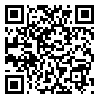Volume 13, Issue 5 (September & October 2022)
BCN 2022, 13(5): 731-744 |
Back to browse issues page
1- Neuroscience Research Center, School of Medicine, Shahid Beheshti University of Medical Sciences, Tehran, Iran.
2- Department of Mechatronics, School of Electrical Engineering, K. N. Toosi University of Technology, Tehran, Iran.
3- School of Cognitive Sciences, Institute for Research in Fundamental Sciences, Tehran, Iran.
2- Department of Mechatronics, School of Electrical Engineering, K. N. Toosi University of Technology, Tehran, Iran.
3- School of Cognitive Sciences, Institute for Research in Fundamental Sciences, Tehran, Iran.
Abstract:
Introduction: Natural rewards are essential for survival. However, drug-seeking behaviors can be maladaptive and endanger survival. The present study was conducted to enhance our understanding of how animals respond to food and morphine as natural and drug rewards, respectively, in a conditioned place preference (CPP) paradigm.
Methods: We designed a protocol to induce food CPP and compare it as a natural reward with morphine CPP in rats. The protocol for reward induction in both groups (foods and morphine) consisted of three phases: pre-test, conditioning, and post-test. In morphine groups, we injected morphine as a reward (5 mg/kg, SC). To induce natural reward, we used two different protocols. In the first one, the rats were deprived of food for 24 h. In the other method, the rats were restricted to food for 14 days. During the conditioning period, the animals received daily chow, biscuits, or popcorn as a reward inducer.
Results: Results revealed that CPP was not induced in food-deprived rats. A combination of food restriction (as a facilitator) and a biscuit or popcorn-induced reward using CPP. In contrast, food deprivation did not facilitate food CPP in response to regular food. Interestingly the CPP score of the group which received biscuits during a 7-day conditioning period was more than that of the morphine group.
Conclusion: In conclusion, food restriction could be a better protocol than food deprivation to facilitate food reward.
Methods: We designed a protocol to induce food CPP and compare it as a natural reward with morphine CPP in rats. The protocol for reward induction in both groups (foods and morphine) consisted of three phases: pre-test, conditioning, and post-test. In morphine groups, we injected morphine as a reward (5 mg/kg, SC). To induce natural reward, we used two different protocols. In the first one, the rats were deprived of food for 24 h. In the other method, the rats were restricted to food for 14 days. During the conditioning period, the animals received daily chow, biscuits, or popcorn as a reward inducer.
Results: Results revealed that CPP was not induced in food-deprived rats. A combination of food restriction (as a facilitator) and a biscuit or popcorn-induced reward using CPP. In contrast, food deprivation did not facilitate food CPP in response to regular food. Interestingly the CPP score of the group which received biscuits during a 7-day conditioning period was more than that of the morphine group.
Conclusion: In conclusion, food restriction could be a better protocol than food deprivation to facilitate food reward.
Keywords: Natural reward, Morphine reward, Food deprivation, Food restriction, Conditioned place preference, Rat
Type of Study: Original |
Subject:
Behavioral Neuroscience
Received: 2020/11/25 | Accepted: 2021/01/28 | Published: 2022/09/11
Received: 2020/11/25 | Accepted: 2021/01/28 | Published: 2022/09/11
| Rights and permissions | |
 |
This work is licensed under a Creative Commons Attribution-NonCommercial 4.0 International License. |





